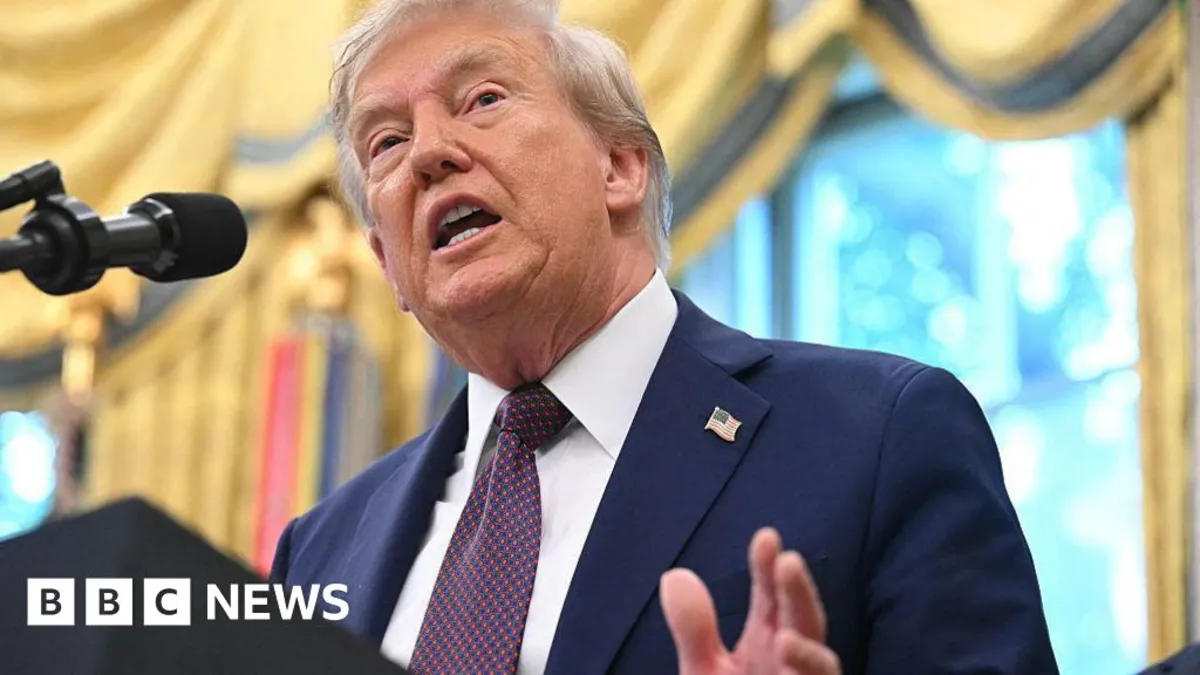
In a significant military operation, the United States has conducted a strike against an alleged drug-carrying vessel in the southern Caribbean, following its departure from Venezuela. This announcement was made by President Donald Trump on Tuesday, marking a notable escalation in the ongoing conflict between the US and the Venezuelan regime.
While President Trump provided limited details regarding the strike, it was confirmed by Secretary of State Marco Rubio that the operation targeted a vessel linked to a designated narco-terrorist organisation. This action aligns with the Trump administration's recent efforts to increase military and political pressure on President Nicolas Maduro and his government.
In recent weeks, the US government has intensified its campaign against Maduro, including announcing a $50 million (£37 million) reward for information leading to his arrest on drug trafficking charges. In response to these actions, Maduro has firmly stated that Venezuela will resist any attempts at military intervention by the United States.
During a press briefing at the Oval Office, President Trump confirmed that US forces had successfully engaged and disabled a drug-carrying boat in the waters near Venezuela, stating, "A lot of drugs in that boat." He mentioned that he was briefed on the operation by the Chairman of the Joint Chiefs of Staff, General Dan Caine.
Following Trump's announcement, Rubio took to social media platform X to elaborate on the strike, asserting that the US military had conducted a lethal strike against the drug vessel operated by a narco-terrorist organisation. However, the exact destination of the vessel, the specific drugs it was transporting, and the organisation it was affiliated with remain unclear.
The US Department of Defense has confirmed that a precision strike took place but has not provided further details about the operation. Since returning to power in January, the Trump administration has officially designated several drug trafficking organisations and criminal groups in Mexico and across Latin America as terrorist entities. Notably, two Venezuelan groups, the Tren de Aragua gang and the Cartel of the Suns, have been implicated in these allegations. The latter group is said to be led by Maduro and other high-ranking officials within the Venezuelan military and intelligence sectors.
Over the past two months, the US military has significantly increased its presence in the southern Caribbean, deploying additional naval vessels and thousands of US Marines and sailors. This move underscores the administration's commitment to using military force to combat the flow of drugs into the United States.
In response to these developments, Maduro's government has expressed strong opposition to the US military deployments. On Monday, Maduro declared that Venezuela would declare a "republic in arms" if the US were to launch an attack, labeling the American military presence as the greatest threat seen on the continent in the last century.
The recent military strike against the drug vessel highlights the escalating tensions between the US and Venezuela, as well as the Trump administration's aggressive stance on drug trafficking. As the situation continues to unfold, all eyes will be on how both countries navigate this complex and potentially volatile issue.